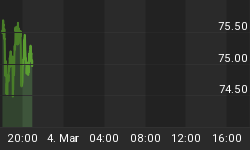If you listen to the top central bankers of the world talk for long enough you will come away with the impression that central banks are attempting to give us "price inflation", as if rising prices were beneficial. However, nobody wants to pay more for stuff. In fact, rational people prefer to pay less, not more. Therefore, when central banks claim to be giving us "price inflation" what they are really doing is stealing the "price deflation" from which we would otherwise benefit.
We are told that a general expectation of rising prices is important, because if people start expecting prices to be lower in the future then they will curtail their spending in the present. This, apparently, will lead to an economically-disastrous downward spiral in which the general expectation of lower prices leads to reduced spending and reduced spending leads to even lower prices.
The economic 'logic' contained in the idea that expectations of higher prices are needed to promote present-day spending explains why companies like Apple can never sell anything. After all, who in their right mind would buy an Apple product today when they can be sure that a better product will be available at a lower price by this time next year?
And just imagine how bad it would be if prices trended lower throughout the entire economy the way they do in the computing and mobile communications industries. There would be almost no spending anywhere! That operation to save your life that you have scheduled for next week could be postponed until healthcare charges have declined to much lower levels. And all of the eating you were planning on doing over the next few months could be delayed indefinitely in anticipation of more attractive food prices. And there would never be a good reason to buy a house or a car because each year you did without these things, the more of a bargain they would become and the better off you would be for not having bought earlier.
Also, try to imagine how bad it must have been before there were central banks to guarantee a continuous rise in the general price level. If expectations of rising prices are needed to promote spending and growth, then in pre-central-bank days, when money often increased in purchasing-power from one year to the next, there must have been almost no spending anywhere in the economy. That is, there must have been relentless economic contraction. Thankfully, we now have people like Ben Bernanke, Janet Yellen, Mario Draghi and Haruhiko Kuroda to save us from such a predicament.
The point that hopefully hasn't been totally obscured by my sarcasm is that central bankers are thieves. They are stealing our deflation. It isn't fair to compare them with common burglars, though, because common burglars don't claim to be doing you a favour while they make off with your valuables.















